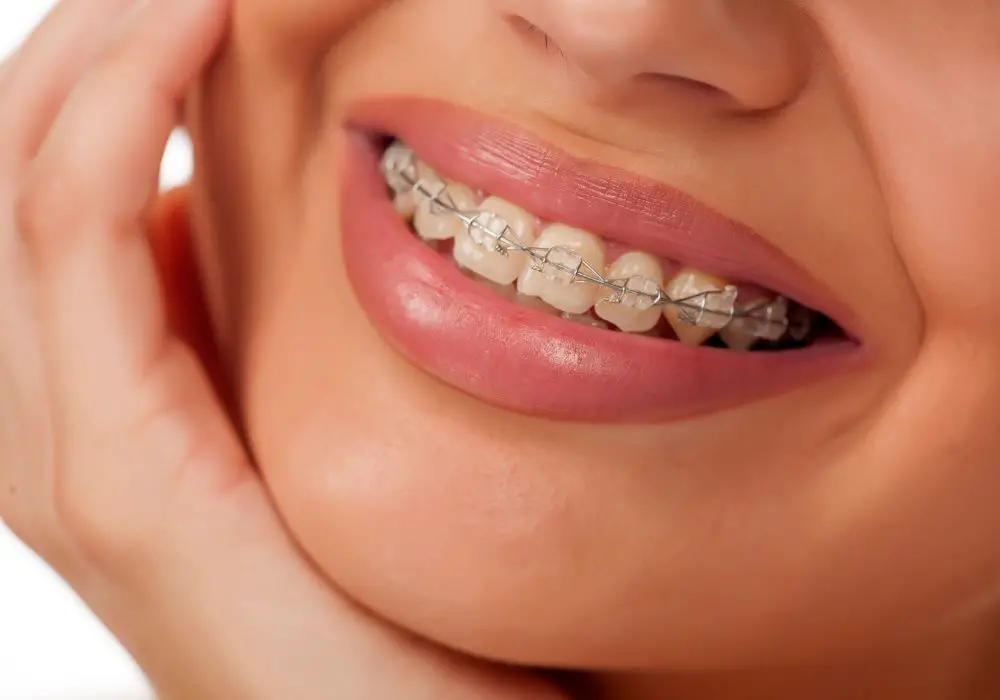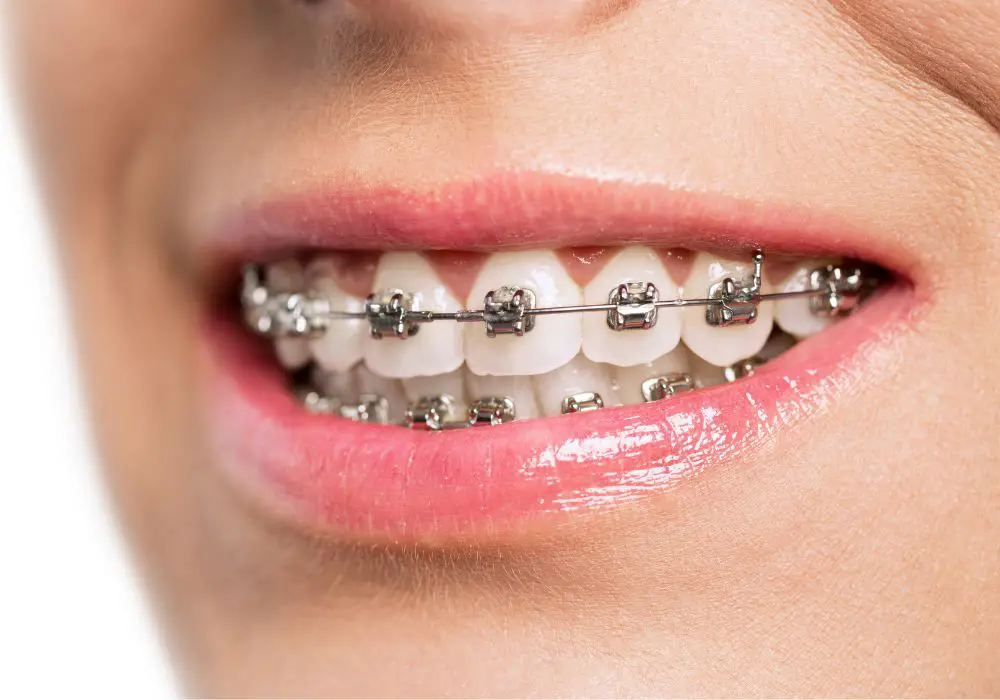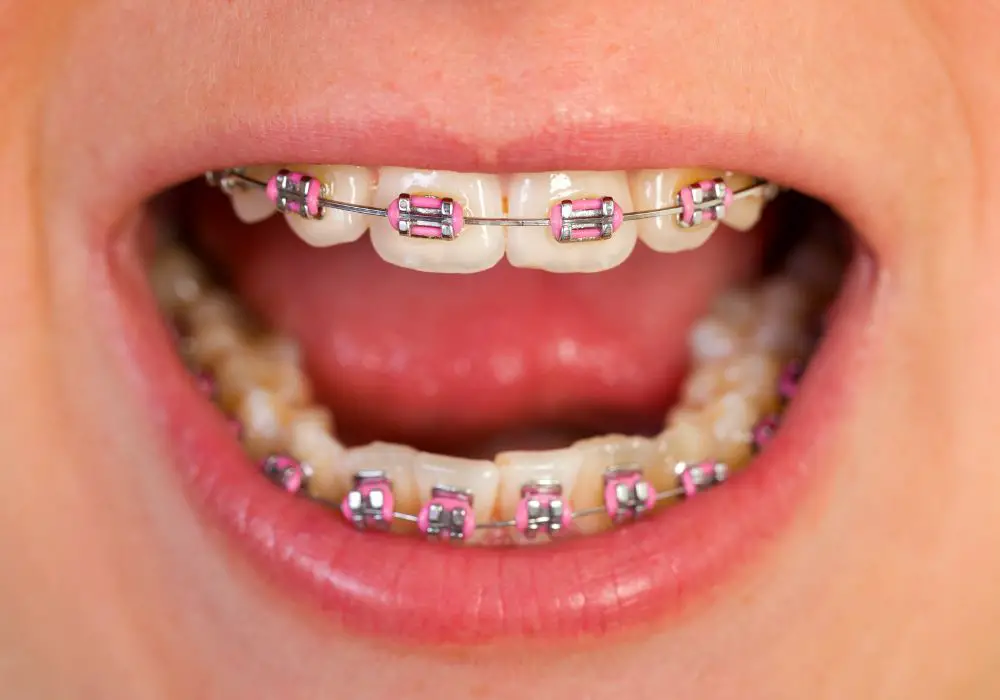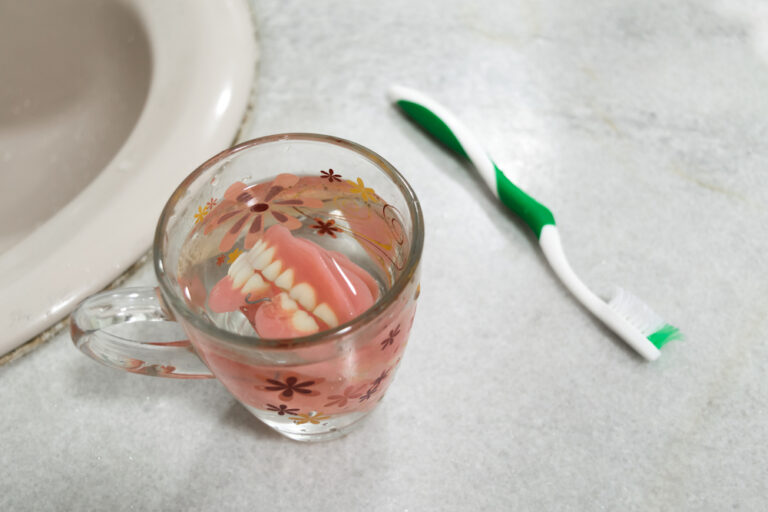Braces are a common orthodontic appliance used to reshape the alignment of teeth and jaws. During treatment, braces exert steady pressure on teeth to gradually shift them into straighter positions over months or years. While this constant force is intended to move teeth safely, some brace wearers worry whether it could actually crack or fracture their teeth.
This comprehensive article examines how braces work, the amount of force they generate, and whether they can literally break teeth under normal treatment conditions. We’ll also discuss warning signs of possible dental damage, steps to protect your smile with braces, and alternatives if you have concerns about tooth injury.
How orthodontic braces move teeth

Before analyzing the forces braces apply, it helps to understand how they actually work to realign teeth. Braces feature four main components:
Brackets
These small squares are bonded directly to the front of each tooth with dental adhesive. Brackets act as handles for the orthodontist to grip and apply force to teeth.
Archwires
These flexible, curved wires thread through the brackets on all the upper or lower teeth. They exert light, steady pressure on brackets to guide teeth into proper positions.
Ligatures or o-rings
These tiny rubber bands or metal clips hold the archwire into the bracket slots. Orthodontists open and close ligatures during adjustments.
Additional parts
Springs, coils, elastics, and other parts create additional force between teeth to control movement. Headgear tubes on molar bands provide anchorage.
During treatment, the orthodontist attaches archwires that flex and strain to pull on misaligned teeth. By opening and closing ligatures at appointments, the tension gets transferred to targeted teeth to gradually shift them. It’s a slow, incremental process taking months or years for full realignment.
Do braces damage teeth?
When utilized correctly following standard orthodontic protocols, braces do not typically cause any lasting harm to teeth. However, some unique risk factors include:
- Poor oral hygiene leading to decay around braces
- Applying excess force too rapidly during treatment
- Attempting to move teeth in unwise directions
- Underlying dental flaws like cavities or cracks
- Trauma or injury to the mouth and braces
Well-trained orthodontists know how to activate braces appropriately and avoid these pitfalls. But if issues arise, contact your provider right away before lasting damage develops.
Can braces literally break teeth?

Healthy teeth are remarkably strong and resilient, designed to withstand years of normal bite forces from chewing and clenching. While the constant pressure from braces is intended to shift teeth safely, many patients wonder whether this force could build up enough to crack tooth enamel or cause fractures.
The fact is, braces do not normally generate sufficient continuous orthodontic force to literally break intact, healthy teeth. There are several reasons for this:
- The jawbone remodels and adapts to brace pressure, preventing excessive strain on teeth.
- Changes occur incrementally, giving teeth time to adjust without trauma.
- Tooth enamel is the hardest substance in the body and braces forces are minor by comparison.
- Orthodontists constantly monitor patient response to treatment and make adjustments as needed.
In rare instances, underlying vulnerabilities in teeth could make them more susceptible to damage from braces. But overall, standard brace treatment is unlikely to split or fracture solid, non-restored teeth.
But what about glued-on teeth jewelry or grills?
Decorative dental jewelry like grills or gems that get bonded directly to teeth for fashion can put enough localized stress on enamel to crack teeth. The glue and constant pressure damages enamel and provides routes for bacteria. These should be avoided to prevent broken teeth. But they are very different from orthodontic braces.
Signs braces may be damaging teeth
While outright broken teeth are unlikely with braces, you should watch for any of the following warning signs and contact your orthodontist immediately:
- Unusual, severe pain and sensitivity
- Chipped, cracked, or fractured teeth
- Breakage or loosening of brace parts
- White spots indicating demineralization
- Red, swollen, or bleeding gums
- Shifting or changes in your bite
- Difficulty chewing or biting down
Leaving issues unchecked allows further damage to occur. Speak with your provider about adjusting orthodontic forces or taking precautions if you notice any problems.
Protecting your smile during braces
You can help keep your teeth strong and stable during orthodontic treatment:
- Brush meticulously around braces and floss carefully.
- Use fluoride rinses or dental products to strengthen enamel.
- Avoid very hard, sticky, chewy foods that could damage braces.
- Wear a mouthguard with contact sports to prevent trauma.
- Show up for all orthodontic progress checks and adjustments.
- Follow home care directions exactly as given.
- See your dentist promptly for any oral health concerns.
With proper care and orthodontic oversight, braces are unlikely to cause broken teeth. But if problems arise, address them quickly to prevent worsening.
Alternatives if braces could damage your teeth

If you have pre-existing dental issues like cracks, large restorations, or gum disease, discuss options with your orthodontist before proceeding with braces. Some alternatives to consider include:
- Clear aligners like Invisalign that use light, removable trays instead of fixed wires.
- Ceramic braces that are less noticeable.
- Using light forces over a longer duration.
- Selective extraction to reduce crowding issues.
- Lingual braces attached to the tongue-side of teeth.
- Restorative treatment to strengthen flawed teeth first.
With a customized orthodontic plan, communicative care from an orthodontist, and diligent home oral hygiene, most patients can complete braces treatment without negative tooth effects. But be proactive in discussing any concerns or problems that arise to keep your smile healthy.
Answers to Common Questions about Braces and Tooth Breakage
Here are answers to some frequently asked questions patients have about whether braces can crack, fracture, or break teeth:
Can braces crack front teeth?
Braces do not normally crack intact front teeth when used properly. But pre-existing cracks from an injury or flaw could worsen with brace forces without precautions.
Do braces weaken or damage tooth enamel?
Braces do not directly damage healthy enamel. But poor cleaning leading to decay around braces can weaken enamel over time. Excellent oral hygiene is imperative.
Can Invisalign or clear aligners break teeth?
Invisalign applies light, intermittent force so minimal risk of broken teeth. But hidden dental flaws could still be aggravated, so identify any vulnerabilities first.
Can braces loosen teeth or make them fall out?
Orthodontic force from braces does not cause properly anchored teeth to become loose or fall out. But poor cleaning can lead to periodontal disease and tooth loss risk.
How long can teeth hurt after a brace adjustment?
It’s common for teeth to be sore for 3-5 days after a tightening as the teeth settle into new alignment. Extended pain may signify an issue needing orthodontic attention.
Should I get teeth restored before braces?
Heavily filled or restored teeth are at higher risk for damage from brace forces. Getting dental treatment first may protect vulnerable teeth during orthodontic treatment.
With the right precautions and care, braces are unlikely to literally crack or fracture solid healthy teeth. But be attentive to any signs of issues and maintain excellent oral hygiene throughout treatment. Consult an orthodontist for the best way to straighten your smile safely.






